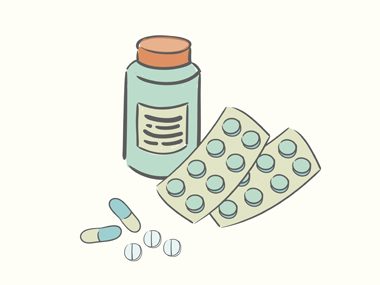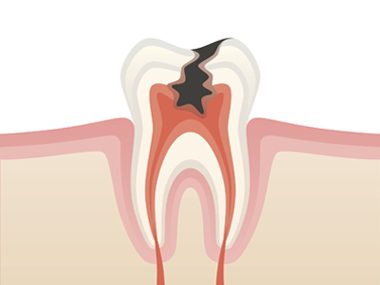News from the World of Medicines:
Why you should chew (not chug) your fruit
 Top Photo Group/Thinkstock
Top Photo Group/Thinkstock
People who ate whole fruits—particularly blueberries, apples, and grapes—at least twice a week cut their risk of developing type 2 diabetes by up to 23 percent compared with people who ate them no more than once a month, according to a new study in BMJ. For fruit juice, however, the reverse was true. People who sipped a serving or more a day had up to a 21 percent increased risk of developing the metabolic disorder.
Does sitting make you sad?
 iStock/Thinkstock
iStock/Thinkstock
Middle-aged women who sat for more than seven hours a day were 47 percent more likely to show signs of depression than those who sat for four or fewer, Australian researchers found. Those who engaged in no physical activity were 26 percent more likely to have symptoms of depression three years later than those who met exercise guidelines. Sitting for long periods has also been linked to heart disease and type 2 diabetes.
Can marriage beat cancer?
 iStock/Thinkstock
iStock/Thinkstock
Married people were 20 percent less likely to die from the disease than those who were single, divorced, or widowed, according to a Harvard study of more than 730,000 people published in the Journal of Clinical Oncology. They were also likelier to get the disease diagnosed at an earlier stage and receive proper treatment. A spouse (or a close partner, friend, or family member) can prod you to seek medical help and support you during grueling chemotherapy, radiation, and other treatments.
New Tylenol warning:
 iStock/Thinkstock
iStock/Thinkstock
To help combat the risks of acetaminophen overdose, the cap of each Extra Strength Tylenol bottle sold in the United States has a new warning in bold red letters: “CONTAINS ACETAMINOPHEN. ALWAYS READ THE LABEL.†Because the pain reliever is in hundreds of over-the-counter and prescription medications used by nearly 25 percent of adults every week, it’s easy to exceed recommended levels (though more than one third of us don’t realize the risk, according to a ProPublica poll). In fact, acetaminophen overdoses send tens of thousands of people to the emergency room every year and are the most common cause of sudden liver failure in the United States. Always follow dosing instructions carefully, and check the acetaminophen content of each product when taking more than one drug simultaneously.
How to spot a liar via text message
 iStock/Thinkstock
iStock/Thinkstock
Watch for a delayed response. When college students were asked to fib during an interview with a computer, they took 10 percent longer on average to send the message, and they made more edits than usual.
Deadly mouth danger
 iStock/Thinkstock
iStock/Thinkstock
The number of Americans who went to the hospital for dental abscesses increased more than 40 percent from 2000 to 2008, according to a new study in the Journal of Endodontics. Many tooth infections are treatable with prompt care, but delays can be serious (for instance, if bacteria travel to the airway, where they can restrict breathing, or to the brain). Seek treatment for any persistent tooth pain, and get regular dental care to treat tooth decay before an abscess can develop.
Intense workouts squelch eating
 iStock/Thinkstock
iStock/Thinkstock
Overweight men who did interval workouts—alternating short bursts of high-intensity exercise with brief recovery periods—ate less post-workout and consumed fewer calories the next day than those who exercised at a continuous moderate pace, found researchers at the University of Western Australia. Interval exercisers also had lower levels of ghrelin, a hormone that stimulates appetite.
Down Syndrome may shed light on Alzheimer’s
 iStock/Thinkstock
iStock/Thinkstock
About half of people with Down syndrome develop symptoms of Alzheimer’s disease by their 50s, and all eventually develop the disease’s trademark brain plaques. (A protein involved in the formation of the plaques is made by a gene on the 21st chromosome, of which people with Down syndrome have an extra copy.) Harvard Medical School and Massachusetts General Hospital researchers have begun a clinical trial of a drug that seems to stop plaque formation in people with Down syndrome. These subjects, who don’t yet have symptoms of dementia, may be an important group in which to study how therapies work in the earliest stages of the disease, when they are believed to be most effective.
No comments:
Post a Comment